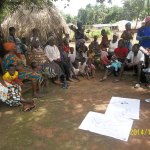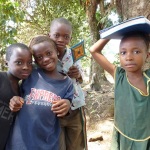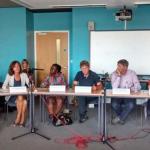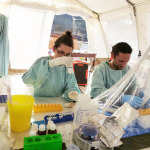The Community Led Ebola Action (CLEA) has empowered communities to do their own analysis and take their own action to become Ebola-free in Sierra Leone. CLEA has focused on triggering collective action by inspiring communities to understand the urgency and the steps they take to protect themselves from Ebola. Community Mobilisers have facilitated this process and communities have modified norms, beliefs and behaviours in response to the conditions around them. The CLEA Approach was used to trigger 9,285 communities in Sierra Leone as of April
Continue reading →
Nearly half the population of Sierra Leone is under the age of 18 years and the impact of the Ebola crisis on their lives now and on their future opportunities has been far-reaching: no school; loss of family members and friends to the virus; and changing roles and responsibilities in the home and the community. While the priority now remains meeting the goal of zero cases, the Government of Sierra Leone (GoSL) is also developing a comprehensive strategy aimed at supporting communities to recover from
Continue reading →
Sociocultural, economic, and political dimensions play a defining part in epidemics and pandemics. Anthropological involvement is increasingly recognised as important, however, integration of social sciences during global health crises remains, for the most part, delayed, inconsistent, and distant from the centre of decision making and resource prioritisation. This problem is representative of much larger systemic barriers to academic and practitioner coordination in global health, humanitarian aid, and development practice. While anthropological insights on-the-ground can and do inform extraordinary containment and education efforts during medical humanitarian emergencies, they are
Continue reading →
The Working Group on Clinial Trials coordinated by the Ebola Response Anthropology Platform has produced a working document which considers the clinical trials that are planned as part of the Ebola outbreak response from a sociological and anthropological perspective. The document develops a series of critical and empirical questions to guide research that should be conducted within, alongside or separate from clinical interventions. The document goes on to consider questions specific to vaccine, therapeutic and convalescent blood and plasma trials.



